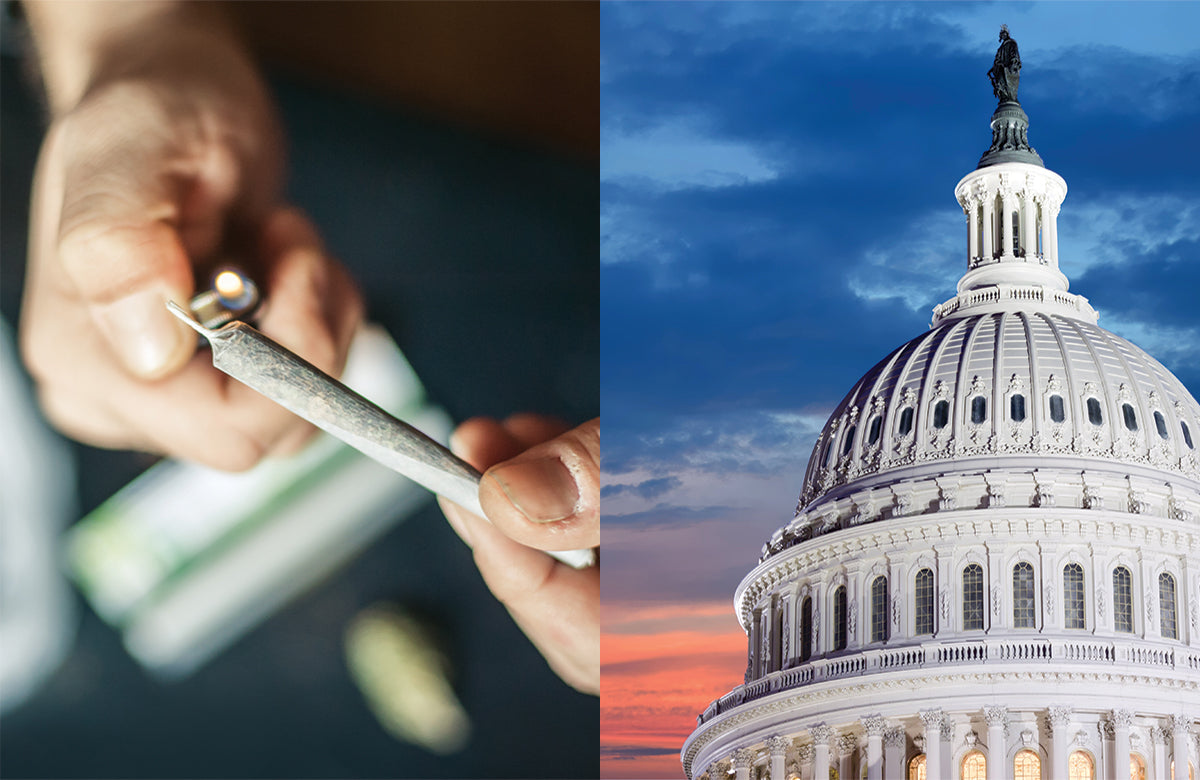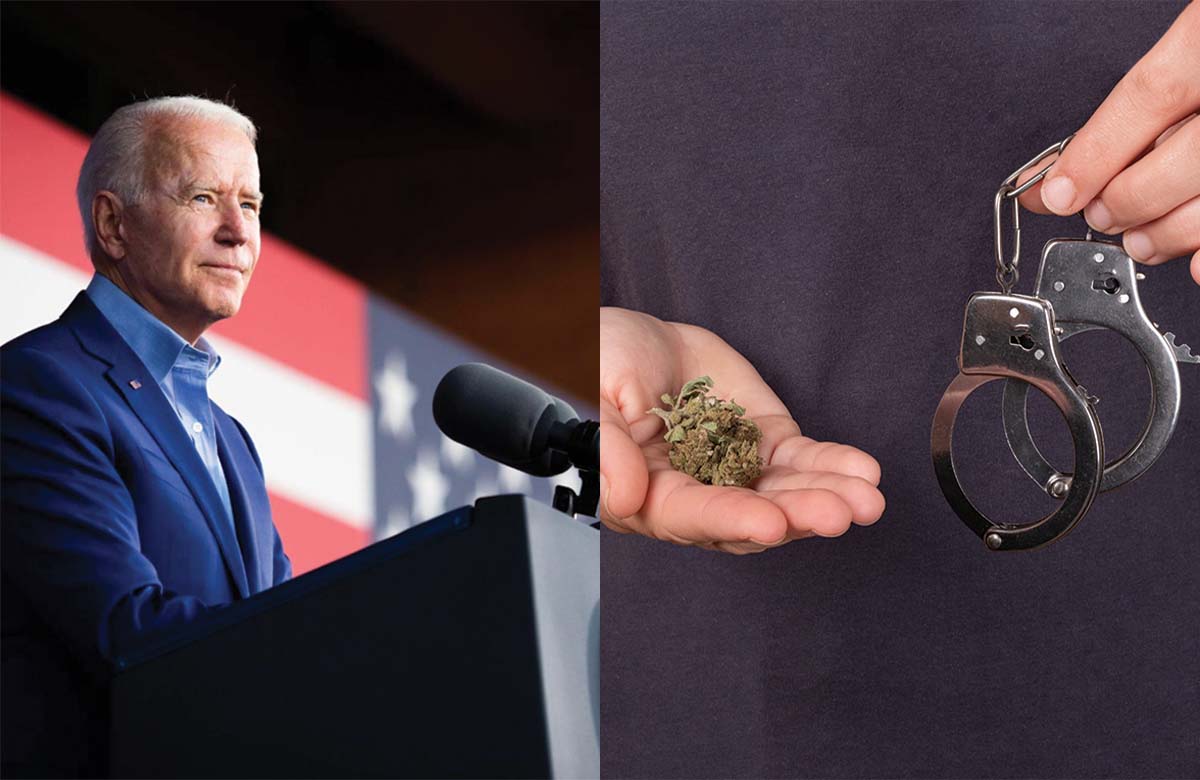Congressional Democrats are preparing several initiatives to decriminalize marijuana for its upcoming session. Among many other goals, the proposals would establish banking services for the multi-billion dollar industry and purge criminal records for thousands of marijuana offenders.
In a memo to the Congressional Cannabis Caucus, Reps. Earl Blumenauer and Barbara Lee wrote, “The growing bipartisan momentum for cannabis reform shows that Congress is primed for progress in 2022, and we are closer than ever to bringing our cannabis policies and laws in line with the American people.”
The memo serves as a map for dozens of bills seeking to reimagine the federal government’s role in every aspect of the cannabis industry.
The Marijuana Opportunity Reinvestment and Expungement Act would redress the racial persecution of the “War On Drugs” by purging records for those convicted of marijuana offenses and would remove cannabis from the Controlled Substance Act.
The SAFE Banking Act would allow cannabis businesses to access credit card processing, commercial loans, and checking accounts, respectively. Currently, any financial institution providing services to legitimate cannabis businesses is subject to prosecution under federal money laundering statutes and aiding and abetting a federal crime. Additionally, marijuana businesses – currently cash-only and a highly desirable crime target – would be safer under the SAFE Banking Act.
The bipartisan Medical Marijuana Research Act would remove restrictions and ensure that federal researchers have access to high-grade cannabis supplies used by consumers.
Another goal for federal marijuana reform is ensuring cannabis is equitable. Not only must lawmakers seek to repair the injustice of the “War On Drugs,” but they must incentivize equal opportunity for people of color to participate in the cannabis industry.
Majority Leader Charles Schumer put it succinctly, “Given the long history of unequal enforcement for cannabis crimes in communities like … Brooklyn — to have the big boys come in and make all the money makes no sense.”
A significant debate on ending the federal prohibition of cannabis is looming. Advocates and supporters are eager to have that debate before the midterm elections. But for Tom Rodgers of Carlyle Consulting, a lobbyist for cannabis legalization and Native American civil rights, conspicuously left out of the coming discussion are protections for indigenous Americans using medical marijuana on tribal land.
The Bureau of Indian Affairs is under the Department of the Interior. According to long legal conventions, the tribal lands it polices are deemed “domestic dependent nations” and under federal jurisdiction.
A bill from Reps. Earl Blumenauer and Tom McClintock passed by the House in 2019 prohibit Department of Justice funding for cannabis enforcement in defiance of state marijuana law. A revision of the bill explicitly extends the law to indigenous tribes. Tribal marijuana markets would get the same authority as their surrounding states.
But Rodgers says those amendments leave Native American consumers and entrepreneurs vulnerable. The amendments only cover actions by the Department of Justice, which is delegating authority to the states.
“The First Americans do not want to once again be treated disparately, disfavorably, disproportionately when it comes to the application of laws and benefits of this country,” Rodgers said.
Despite the potential for reform in this upcoming Congressional session, many Democrats remain frustrated with Pres. Biden’s inactivity.
Rep. Alexandria Ocasio-Cortez has urged the president to take unilateral action on various progressive policies, including cannabis. She believes he needs to stop delaying and utilize his executive authority to take action on cannabis, climate, health care, immigration, student debt, and more. Ocasio-Cortez posted to her Twitter account, “Time is running out — we need to move and use alternative paths.”
A pair of Republican lawmakers recently sent Pres. Biden and Vice President Harris a letter criticizing their “lack of action” and “continued silence” on marijuana reform and urged the administration to reschedule cannabis under federal law.
A group of senators, led by Sen. Elizabeth Warren, also sent a letter urging the president to use his executive authority to grant pardons for people with non-violent marijuana convictions. Sen. Warren has said that with the “stroke of a pen,” Biden could boost the economy and promote racial equity.
Much of the support for wide-ranging reform is bipartisan. Reps. Dave Joyce and Don Young, both Republicans, sent a letter to Biden and Vice President Harris urging them to change cannabis from a Schedule I to a Schedule II substance under the Federal Controlled Substances Act. The letter advocates distancing cannabis from “far more dangerous drugs such as Fentanyl, morphine, methadone, and cocaine.”
A recently Congressional Research Service report affirmed that it is within the scope of the president’s power to grant mass pardons for cannabis offenses and to legalize cannabis federally without waiting for lawmakers.
In August, the White House said that the president was “looking into” granting amnesty to those with non-violent drug convictions. Back in April, when pressed on Pres. Biden’s clemency promise, White House Press Secretary Jen Psaki said that process would start with modestly rescheduling cannabis. But moving cannabis to Schedule II under the Controlled Substances Act wouldn’t facilitate mass clemency. Being convicted for crimes related to Schedule II drugs — which currently includes cocaine — also carries significant penalties.
According to a 2020 Gallup poll, nearly 70 percent of Americans support legalizing marijuana. Five states — New Mexico, New Jersey, Virginia, and Connecticut — allowed recreational cannabis in just the past year.














Leave a comment
All comments are moderated before being published.
This site is protected by reCAPTCHA and the Google Privacy Policy and Terms of Service apply.